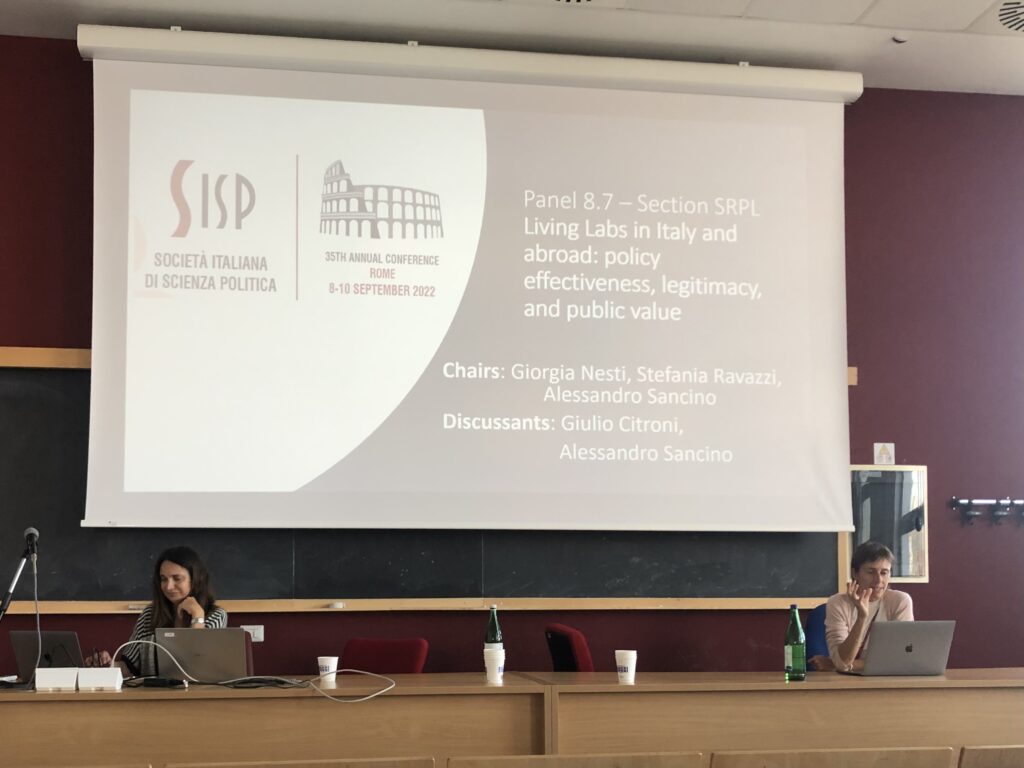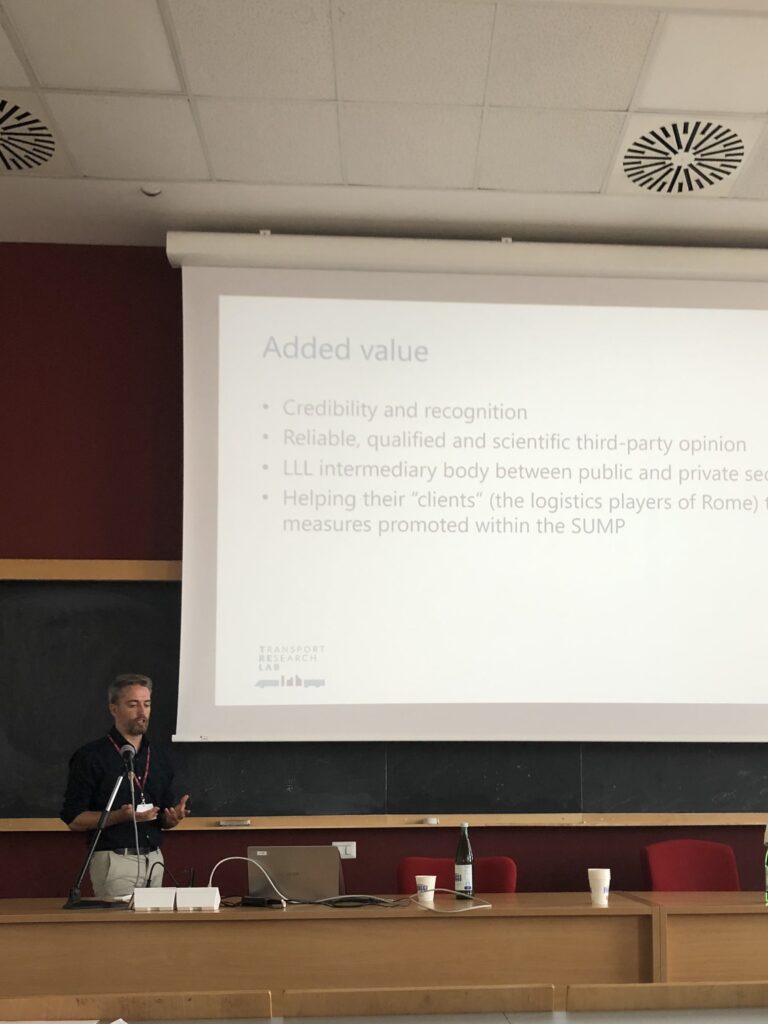On 9 September 2022, Giacomo Lozzi of TRElab presented the activities of the Logistics Living Lab (LLL) in Rome and the L-3D project at the Conference of the Italian Society of Political Science, SISP2022. The session presented Living Labs in Italy and abroad, looking at their policy effectiveness, legitimacy, and capacity to produce public value.

Living Labs are spaces where different categories of actors interact to design, prototype, produce and test solutions to public problems with the support of experts belonging to research centers, NGOs or public administrations.
Whilst there has been a large diffusion of labs at the international level and in Italy, relatively little is known about their problem-solving effectiveness, and the way their results are mainstreamed into local, regional, and national policy-making processes. Moreover, more research is needed to assess important issues such as how accountability is ensured in public contexts, whether stakeholders and citizens engagement is real, open, and transparent, and what kind of public value they are promoting.
The panel analyzed Labs experiences in Italy and/or at the international level, also with a focus on cities and regions, presenting single case studies or adopting a comparative perspective.
The added value of a living lab run by a research body like TRElab is that they are the intermediary element between public and private sector. TRElab provides the reliable, qualified and scientific third-party opinion. They can bring all stakeholders at the same table to discuss about new solutions.
The solutions to be tested and upscaled within the LLL are supposed to be market-driven, but at the same time the LLL has as a reference the measures included in the Sustainable Urban Mobility Plan (SUMP) of Rome. The SUMP of Rome was explicitly based on engagement. Therefore, the added value is that TRElab is helping the logistics players of Rome to apply the measures promoted within the SUMP, without neglecting its operational and financial sustainability.

TRElab’s learnings for other LLLs is to start with a focussed theme and case. It allows the LLL to concentrate on the initial demonstration and applying the LL methodologies. Moreover, the stakeholder analysis and engagement process require a segmentation of problems and stakeholders as different flows (e.g. waste, construction, parcel delivery, e-commerce, groceries and retail), involve different stakeholders and have different implications to manage urban freight. The design of the participatory process must take into account their different nature, as well as the different needs, priorities and strategies.
In this regard, the project “L-3D – a new dimension of participation”, coordinated by TRElab and funded by the Lazio Region, uses storytelling techniques to improve stakeholder involvement dynamics in the decision-making process for urban logistics, thanks to the use of new technologies and innovative communication tools. The project develops and systematizes an innovative decision support system to assess the ex-ante acceptability of measures with specific reference to urban logistics.
(Source: SISP2022 website)
